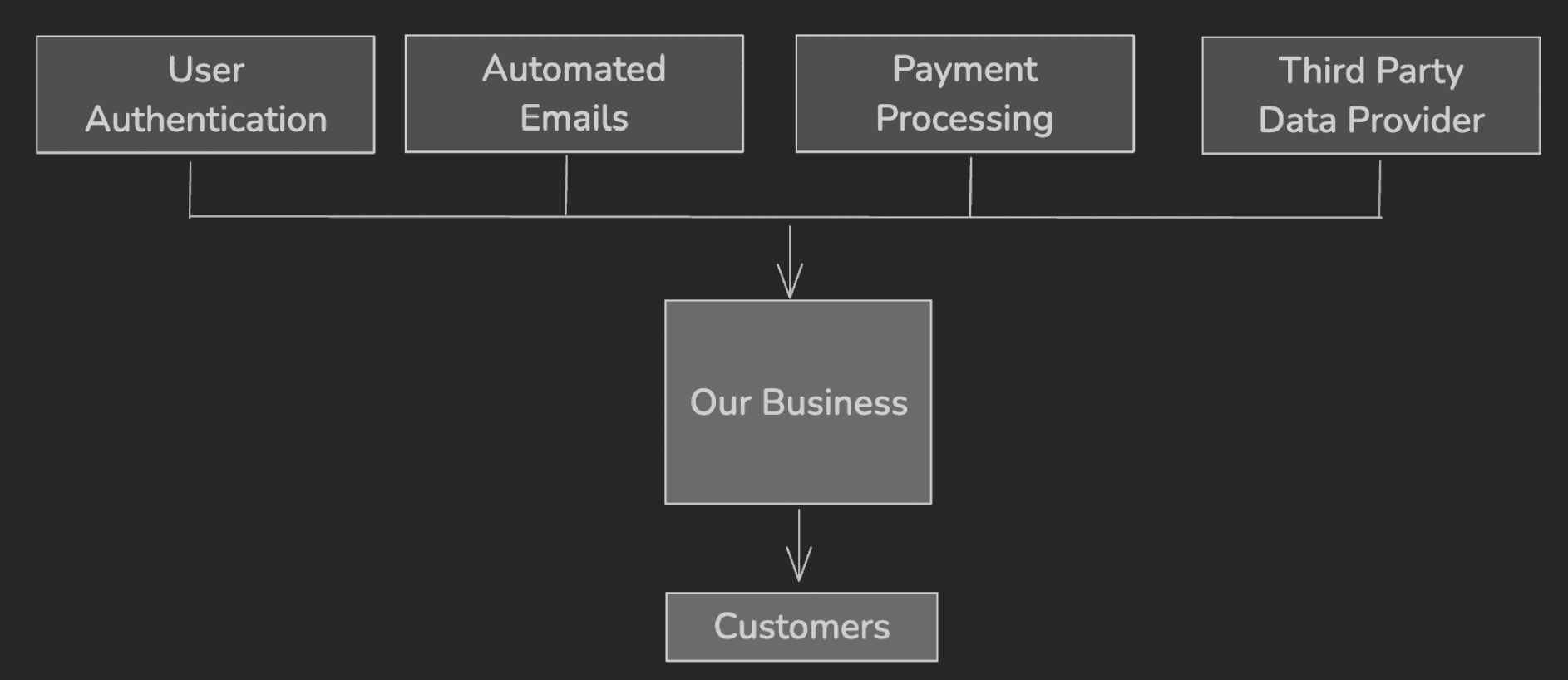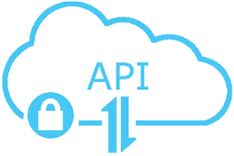What is an API
Ever wondered what people mean when they mention "API" in meetings? If you're a founder who's not deeply involved in the technical side of your business, the term can sound like just another piece of jargon thrown around by developers. But here's the thing—APIs are actually one of the most important tools driving the modern digital world, and understanding the basics can help you make smarter business decisions.
APIs, or Application Programming Interfaces, might seem complicated, but they don’t have to be. You don’t need to know how to code or dive into the technical details to understand their impact. In simple terms, APIs are like the middleman that allows different software systems to communicate with each other. And in today’s tech landscape, they’re essential for everything from automating tasks to connecting services and building scalable products. So let’s break it down and see why everyone keeps mentioning APIs and how they can benefit your business.
Let’s look at an example so we have a concrete reference point. Imagine that we need to fetch the weather forecast. An API is the best way to fetch this information, compared to alternatives like manually getting the data or web scraping. APIs can be free or premium. The National Weather Service provides a free API that we can use. If we want to fetch the weather for Linn, Kansas we can do so submitting the latitude and longitude coordinates to the API. You can fetch the response by going to the following URL: https://api.weather.gov/points/39.7456,-97.0892

Build vs Buy
We won’t dive deep into the build-vs-buy discussion here, but it’s worth briefly mentioning. Many third-party API providers charge a fee to use their services. Depending on your use case and competitive advantages, you may decide to either pay for a service or build it yourself.
The upside of building a service is that you have full control over how it’s developed and integrated with your system; however, you're also responsible for maintaining it and fixing any errors that arise. Additionally, if you estimate that a service will take one month to build but it ends up taking two, that's a risk you bear when building in-house.
The advantage of buying a service is that it’s ready to use, the pricing is predictable, and you don’t have to deal with development or potential bugs. However, as your company scales, the cost of the service can become significant. Additionally, third-party services may become deeply integrated into your systems, making it difficult to migrate away—a situation often referred to as vendor lock-in.
The first thing you’ll notice is that the response from the API is not very human-friendly. That’s because APIs are primarily designed to interact with other computers. The API responds with a lot of information. It provides the grid coordinates, time zone of the city, which radar stations is closest, and a link to the hourly forecast. Notice, the link to the hourly forecast is to a separate API link. So, let’s visit that API link.
Finally, we have the weather forecast. We can see the “periods” key contains the data relevant to our weather forecast. We can take this information and display it in our website, or in marketing materials to customers in a user friendly way.

Why APIs are important?
APIs are critical for enabling seamless integration between different services and products. Think of them as bridges that allow one system to communicate with another, even if they’re built using completely different technologies. For instance, if you have an e-commerce platform, integrating a payment gateway like Stripe or PayPal through their APIs ensures smooth and secure transactions without you needing to build a custom payment system from scratch. APIs make it possible for your software to "talk" to other platforms, which in turn expands its capabilities by leveraging external services.
In addition to connecting systems, APIs boost efficiency by automating tasks that would otherwise require manual effort. This not only saves time but also reduces the risk of human error, allowing businesses to scale faster. For example, Uber’s app uses Google Maps’ API to show drivers and customers real-time locations. Without APIs, Uber would need to build its own mapping service—a massive, costly, and time-consuming task. Instead, by using Google Maps’ API, they can focus on their core service while still providing a reliable, integrated feature. APIs let businesses add powerful functionality, streamline processes, and deliver better customer experiences without reinventing the wheel.
Example
The image below can be a helpful way to think of your business. Your business will incorporate many services from third-party vendors. Common services include authentication for your users (e.g. how to handle securing passwords, emails, etc), handling automated emails, payment processing, and any other third-party data providers that are specific to your business.

Executive Summary
APIs are more than just a technical buzzword; they are a fundamental building block for any modern business. Whether you're integrating payment systems, automating workflows, or connecting with external data sources, APIs allow your business to be more agile, scalable, and efficient. Understanding their role, even at a high level, can empower you to make better strategic decisions—whether you're choosing which services to integrate or weighing the pros and cons of building versus buying a solution. As your business grows and evolves, APIs will continue to be a key part of enabling innovation and driving growth. So the next time you hear someone mention APIs, you'll know just how critical they are to the success of your business in the digital world.
